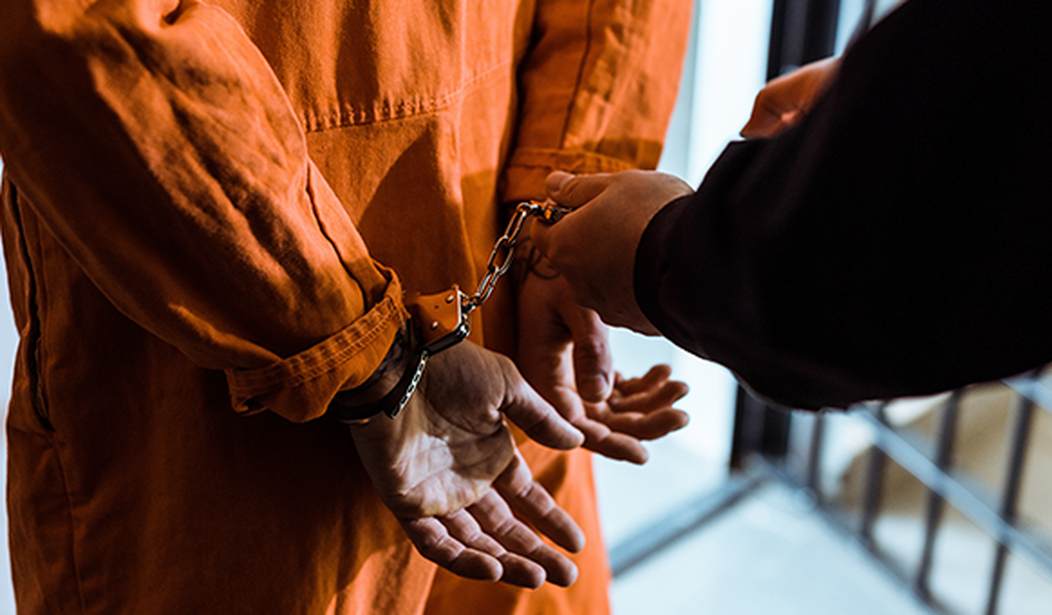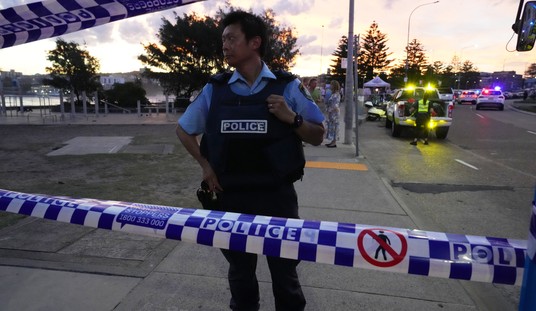As you hopefully already know, in every episode of Bearing Arms’ Cam & Co I feature a segment called the “Recidivist Report” where I highlight a current case from the criminal justice system involving someone who copped an incredible plea deal allowing them to avoid severe consequences, even for serious crimes. Unfortunately there’s no shortage of stories for me to cover, especially with readers and viewers sending me stories from their neck of the woods. This morning, for instance, a reader named Michael shared this piece about an Ohio man named Nahya Wimpye, who was recently sentenced to 4 1/2 years in federal prison for possessing an AK-style pistol as a convicted felon. Though Wimpye is only 24-years-old, he’s managed to rack up an impressive criminal history in his young life.
On Christmas Day 2020, police pulled over the car in which Nahya Wimpye was a passenger and found a loaded gun that prosecutors described as “the pistol equivalent of an AK-47.”At the time, Wimpye was still under supervision by authorities after serving two years in state prison for illegally possessing a gun as well as trying to escape from police. He had been released from prison about seven months before.But those convictions only tell part of the story. Wimpye pleaded guilty in 2018 to the gun and escape charges in exchange for prosecutors dismissing more serious charges, including two counts of felonious assault. In one case, Wimpye was accused of shooting a man in the face during a robbery, according to court documents. In another, he was accused of shooting a juvenile in the lower back. Both victims survived.Court records don’t specify why prosecutors dismissed the more serious charges, but it’s possible the victims wouldn’t cooperate. He wasn’t allowed to possess a gun in 2018 because he had been convicted of assaulting a corrections officer.… After being charged in state court, Wimpye was out on bond when he was arrested at least one more time for illegally possessing a gun, officials aid. He was indicted on the federal gun charge in October 2021.In court documents, prosecutors said Wimpye’s criminal history is filled with “gun offenses, assaults on law enforcement and violations of prison rules.”Wimpye, prosecutors said, “has been a criminal since he was 13 years old and continues the pattern of illegally possessing firearms despite all attempts to disarm him.”
The Task Force collected testimony from experts in the field who demonstrated that throughout the plea process similarly situated defendants of color fare worse than white defendants. Black defendants in drug cases, for instance, are less likely to receive favorable plea offers that avoid mandatory minimum sentences and, as a result, receive higher sentences for the same charges as white defendants. The same is true for gun cases, in which Black defendants are more often subjected to charge stacking—a technique that allows prosecutors to pile on many charges, increasing the likely sentence after trial and the government’s leverage during plea negotiations – than white defendants.
At the police precinct after his arrest, Mr. Prosser confessed to possessing the gun for self-defense. He had repeatedly been the victim of violent stranger assaults and robberies on the street. When he started a job that required that he travel two hours for work every day, he decided to carry a firearm. He did not possess it with any intent to engage in violence, but his experiences taught him that he needed a weapon to be safe. In response, the prosecution charged him, like so many others, with N.Y. Penal Law § 265.03(3), a violent felony. After lengthy plea negotiations, the prosecution offered him a “deal” to a probation sentence on a plea to a lesser charge—also a violent felony—because he had previously been a victim of violence. Afraid of the 3.5-to-15-year mandatory sentencing range on the top count, Mr. Prosser accepted the offer.Because of New York’s carry licensing requirement, Mr. Prosser’s once-bright future will forever be marked with the scarlet letter of “violent felon.” He is barred from serving on a jury.He is prohibited by federal law from possessing a firearm and is forever ineligible for a firearm license under New York’s law. And he will face the worst kind of “‘civil death’ of discrimination by employers, landlords, and whoever else conducts a background check.”Mr. Prosser is grateful not to be incarcerated. However, he is also deeply disheartened, struggling with the idea of being another nameless casualty in a licensing system that was designed to preclude him from exercising his rights.









Join the conversation as a VIP Member